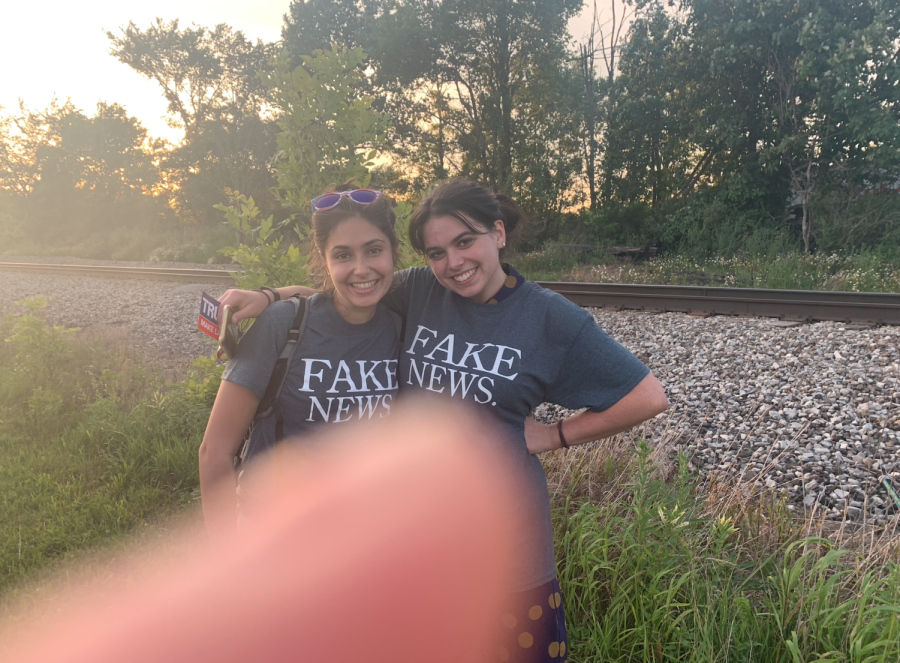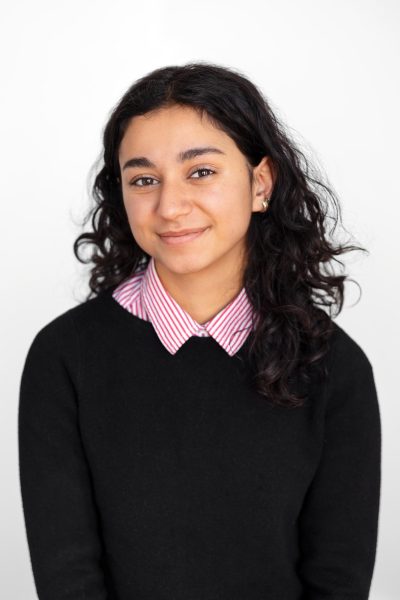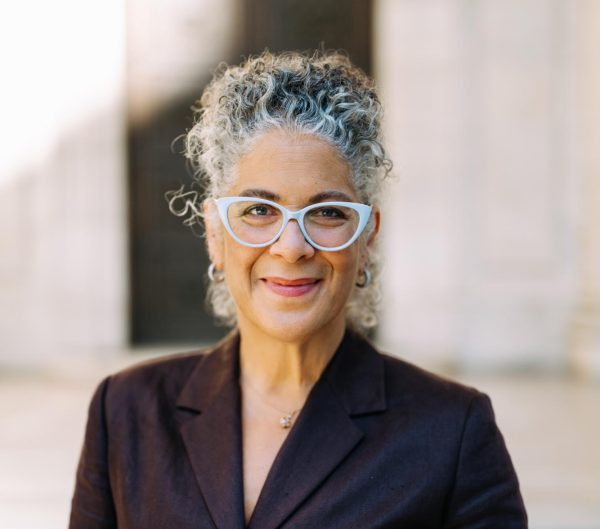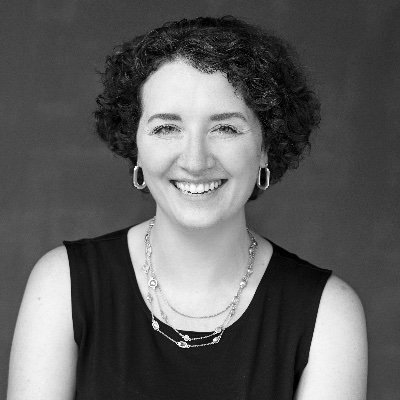Anisa Curry Vietze and Gigi Ewing, Senior Staff
Anisa and Gigi, with a special feature from Ella’s finger, as they reported live from the Trump rally in Wellington,OH in June 2021.
In 2018, two brilliant and immensely powerful women stepped into an unassuming Oberlin campus. In week one, Anisa Curry Vietze shook the Oberlin journalism scene with her first article: ““Lorain, Ohio Misses Deadline on Medical Marijuana Program.” From then, Anisa went on to report on everything from the biggest Gibson’s lawsuit updates to comedy siblings hosting Shit Pit. Her range and skill as a writer are rivaled only by her wit and candor. In year two, Gigi Ewing made her debut as a Production Editor extraordinaire, serving as a masterclass on both AP Style and everlasting charm. With an iconic first article, “#VotingIsSexy Initiative Hopes to Engage Students,” Gigi soon rose to the role of News Editor, breaking stories on the Professor Mahalati controversy, the College’s COVID-19 responses, and the Oberlin Student Cooperative Association’s resurgence after the pandemic. Gigi and Anisa have matching “TKTK” tattoos, a Review inside joke, For the last two years, Anisa has mentored me and this paper as Editor-in-Chief, and for the past two semesters, Gigi has inspired me through her work as Managing Editor. I have been privileged to work alongside Anisa and Gigi on Senior Staff, and with their departure bid farewell to two hallmarks of the Review.
This interview has been edited for length and clarity.
What made you both join the Review?
GRE: I joined the Review in fall 2019, which was the beginning of my second year. I saw an ad on Facebook and the person who posted it was my tour guide from when I first visited Oberlin two years before — Devyn Malouf, OC ’20. I really, really liked her when I did the tour with her, and she was actually one of the reasons I came to Oberlin. I am an English major, and I knew that I wanted to be a writer, but I never knew how I wanted to pursue that. And I figured that if she was advertising something, it would be good. So I applied for the production job, and I got it and I started that fall. Then it was love at first production.
ACV: I came to college knowing that I wanted to do journalism in some way, but I thought newspapers were boring. I was definitely gonna try writing for a student publication, and during orientation week, by happenstance I met former Editor-in-Chief Nathan Carpenter, OC ’20. He asked me what publication I was interested in writing for, and the only one I could remember was The Oberlin Review. And he was like, “I’m Editor-in-Chief!” and shook my hand. He really showed me the ropes of the Review. I started writing my very first semester, and started editing my second semester, which was honestly a lot for me as a first-year, but also gave me access to this whole community of older students who were mentoring me in this way that I never would’ve been mentored in a class, even by the most accessible professors.
Which parts of the Review will you take with you in your next steps?
GRE: I feel like for me, on a very basic level, it’s given me a career path. I didn’t know what I wanted to do with my life before the Review. And I always felt very behind because I felt like everyone else knew what they wanted to do, knew who they wanted to be. And I feel like that identity for me really grew out of the Review, both in terms of the career I wanna have moving forward, but also the type of professional I want to be. I feel like I’ve learned a lot working here. I’ve learned a lot from my mistakes here, and from other people’s mistakes — mostly my own. I’ve learned how to work with people, how to not work with people. I’ve seen the worst parts of myself and the best parts of myself come out in this office. I think that it’s given me a better handle on how I interact with people, how I take care of myself, how I pursue the work that I do, what my motivations and goals are — things like that. It’s also taught me about the types of people that I want to surround myself with. Not just in the workplace, but also in friendships.
ACV: Like Gigi, I do wanna pursue journalism and the Review definitely got me closer to my 10,000 hours. I’ve done probably hundreds of interviews at this point. I started off as someone who was extremely anxious going into interviews. I’m not inherently the type of person where it was easy for me to talk to strangers, I think that is exactly the reason I wanted to pursue this type of work. Another way this work has pushed me is in being a leader and in charge of a 40-person staff. Making big, editorial decisions that have real impacts on people’s lives is another component that I particularly struggled with, and also particularly got something out of.
I think the biggest thing the Review taught me about is my relationship to work, this idea that I can find meaningful work. The great thing about the Review is that it sort of exists adjacent to capitalism. No one is profiting off of our labor, everyone is really just doing it because they care about it. But I think when I got to college, I had the sense that the only way that I was gonna find happiness was through working as hard as possible. I think I did find happiness in doing that for a long time — and then I found out that you can’t do that forever. I think the Review also taught me balance, how to do this intense of a job , but give myself the space to have things outside of work as well. I think one of the great things about this year’s senior staff is that we’ve done a good job between the three of us saying, “Okay, this is the night that this person seems like they’re having a particularly hard time. Maybe you should go home early and we’ll take care of it.” And how we delegate these tasks among ourselves so that we’re not burning ourselves out and we’re not overwhelmed. I hope that we’re doing that for our staff as well.
The Review is a lot of work. What made you all stick with it?
GRE: The Review was the first community that I found on campus and I felt very disconnected from Oberlin before I joined the Review. Then I joined the Review and everything changed and it feels like my identity as an Obie has grown out of working here. Especially being in production, you read the whole paper basically every week, so you get such a good sense of what’s going on on campus, what’s going on in town, what everyone’s doing, what the tea is, what the culture is.
ACV: I think there definitely have been moments that I’ve considered leaving just because it does sort of take over your whole life and that can feel very intense. However, I think the “it takes over your whole life” quality is also part of why I stayed. Of course, there’s the community. Of course there’s feeling like I was mentored here and I want to continue that mentorship going forward. Of course, there’s, you know, just the deep love of making a paper every week, but also there’s something so special about the Review, which is that everyone in this office cares so much about it.
What is your favorite memory at the Review?
GRE: My favorite Review memory was the first party that we ever had at the beginning of my second year. There were just certain vignettes from it that will forever be engraved on my mind. One of them was sticking Swedish Fish up Nathan Carpenter’s nose as he laid passed out on the couch. Another one was playing a very intense game of Jenga and just the general spirit and energy that everyone had. It was the first time in college that I felt like I belonged somewhere.
ACV: Mine is everything that happens in the in-betweens when we’re either procrastinating work or there’s a lull in the work we have to do. It’s shooting each other with Nerf guns in the office. It’s playing the same five songs early Friday morning when everyone’s bleary-eyed and tired. It’s people saying unhinged things that we write on the walls in Sharpie. It’s the walks to DeCafé or the times that College fourth-year Katie Lucey, OC ’20, and I would run around North Quad because we’d been sitting in the office for too long and couldn’t read anymore. I think that the community and the fun that comes with the Review is always little moments tucked between stress and work, which almost makes it sweeter.










